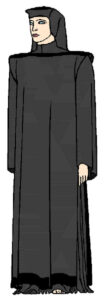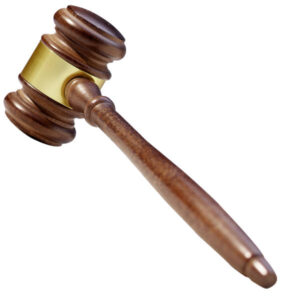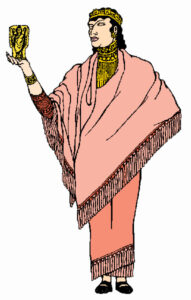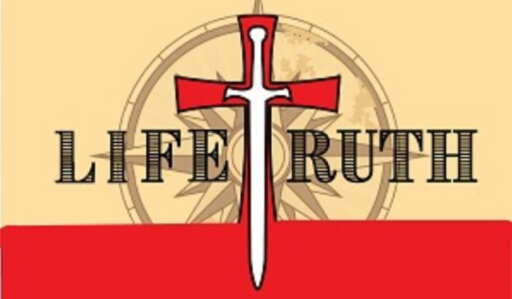The 9th command is simple, but often abused and misunderstood. Does it really mean we should never tell a lie? Are there times when concealing the truth is OK? Are we obligated to obey when a lie is involved? Using some study resources, Keith shares some personal notes and thoughts on the topic.
First, a literal rendering of this command, followed by cross referencing what scripture has to say elsewhere in its pages. Finally summarizing with what the Westminster Confession teaches on the topic.

The command is found in Exodus 20:16. My notes that takes each word literally comes out as follows. (Notice that comm as separate each word to align with Hebrew words.):
No, heeding, in a neighbor, a witness, untrue.
As the New American Standard Bible puts it: “You shall not bear false witness against your neighbor.
Cross References
Command 9 is hard to put any differently. King James states: “Thou shalt not bear false witness against thy neighbour.”
- What does it mean to bear false witness?
- What is a false witness?
- How harshly should a lie be treated?
- It isn’t as bad as other sins, is it?
Here’s how the command on false witness is treated elsewhere in the books of the law. References are from the English Standard Version.

Exodus 23:6-7
6 “You shall not pervert the justice due to your poor in his lawsuit.
7 Keep far from a false charge, and do not kill the innocent and righteous, for I will not acquit the wicked.
Leviticus 19:11
“You shall not steal; you shall not deal falsely; you shall not lie to one another.
Leviticus 19:16
You shall not go around as a slanderer among your people, and you shall not stand up against the life of your neighbor: I am the Lord.
Deuteronomy 19:15-21
15 “A single witness shall not suffice against a person for any crime or for any wrong in connection with any offense that he has committed. Only on the evidence of two witnesses or of three witnesses shall a charge be established.
16 If a malicious witness arises to accuse a person of wrongdoing,
17 then both parties to the dispute shall appear before the Lord, before the priests and the judges who are in office in those days.
18 The judges shall inquire diligently, and if the witness is a false witness and has accused his brother falsely,
19 then you shall do to him as he had meant to do to his brother. So, you shall purge the evil from your midst.
20 And the rest shall hear and fear, and shall never again commit any such evil among you.
21 Your eye shall not pity. It shall be life for life, eye for eye, tooth for tooth, hand for hand, foot for foot.
- Clearly false witness is closely tied to perverted justice, theft, slander, and all manner of falsehood.
- The legal system required 2 or 3 witnesses to prevent false charges.
- If a false witness is found out, He was to suffer the penalty he tried to accuse his neighbor of doing.

Two Abuses of the law
Lying to the king.
Jumping into the middle of the story, we find king Saul upset over being lied to, with truth not being revealed to him, and a conspiracy in a priestly tribe. If the allegations are true, these are some serious crimes deserving death. There are a few things missing in this snapshot of events.
- Where are the required witnesses?
- Why are his closest soldiers disobeying?
- What other injustices are done in the authority of punishing a lie that doesn’t exist?
1 Samuel 22:8-19
Saul a ccuses all his inner circle of conspiracy, withholding knowledge of a secret pact between his son and David. It took a foreigner to come forward to reveal David’s whereabouts. He visited a priest who gave him provisions.
The priest is called, and in verifying what he did for David, insisted he did no wrong. David was a favored man in the kings court. There was no sign the relationship had changed. The king saw it as a conspiracy, and a death sentence ordered. The charge was that they knew David fled, and didn’t report it.
The kings’ soldiers refused. It took ordering the foreigner to utterly destroy the priest, all his family, and all the livestock.
- The king perceived a lie that didn’t exist. David had been nothing but loyal.
- David’s departure came only after proving the king was out to kill him.
- Soldiers withheld knowledge, normally a lie, but not when the kings’ accusations were false.
- Priests had no idea that they should report David’s activity and faced death for providing the priestly services they would typically do.
- Soldiers again disobey. Charges of a lie are an illusion.
- It takes a foreigner among them to carry out the injustice.
More abuse of the law – Jezebel
1 Kings 21:10-13
A command from the queen sent instructions detailing the use of false witnesses to kill an innocent man. Unlike Saul’s soldiers who refused to take part, the city officials went along with the plan.
- The lie once again came from the top. The queen wanted to land that Nabob rightly owned.
- She told city leaders how to set up false witnesses.
- Could they have disobeyed? Should they have disobeyed? Saul’s troops were at least brave enough to do that.
- The injustice was set up, with the local government just as complicit as the queen.
- With no real judges, Nabob fell prey to the lie of his government.

Traits of someone opposite of a liar
Psalm 15:3
who does not slander with his tongue
and does no evil to his neighbor,
nor takes up a reproach against his friend;
Psalm 101:5-7
5 Whoever slanders his neighbor secretly
I will destroy.
Whoever has a haughty look and an arrogant heart
I will not endure.
6 I will look with favor on the faithful in the land,
that they may dwell with me;
he who walks in a blameless way shall minister to me.
7 No one who practices deceit shall dwell in my house;
no one who utters lies shall continue before my eyes.
Proverbs 10:18
The one who conceals hatred has lying lips,
and whoever utters slander is a fool.
Proverbs 11:13
Whoever goes about slandering
reveals secrets,
but he who is trustworthy in spirit keeps a thing covered.
How does the law about false witnesses show up in the New Testament?
Matthew 26:59-60
59 Now the chief priests and the whole council were seeking false testimony against Jesus that they might put him to death,
60 but they found none, though many false witnesses came forward. At last, two came forward
Acts 6:13
and they set up false witnesses who said, “This man never ceases to speak words against this holy place and the law,
Ephesians 4:31
Let all bitterness and wrath and anger and clamor and slander be put away from you, along with all malice.
1 Timothy 1:10
the sexually immoral, men who practice homosexuality, enslavers, liars, perjurers, and whatever else is contrary to sound doctrine,
2 Timothy 3:3
heartless, unappeasable, slanderous, without self-control, brutal, not loving good,
- Again, telling a falsehood is grouped among some of the worst of sins.
- Paul warns Ephesians to put away bitterness, wrath, slander, malice, and anger.
- Lies or perjury is grouped with perverse sexual sin, those who enslave.
- Heartless, brutal people who are never satisfied and generally hate anything good
James 4:11
Do not speak evil against one another, brothers.
The one who speaks against a brother or judges his brother, speaks evil against the law and judges the law.
But if you judge the law, you are not a doer of the law but a judge.
- Not spreading falsehood begins with not desiring evil against one another.
- Contentions mean hatred for the law and require judges to oversee it.
- Better to be gracious than judgmental.

Westminster Confession summarizes what the 9th Command Means with duties to perform, and sins to avoid.
The duties required in the ninth commandment are,
the preserving and promoting of truth between man and man, and the good name of our neighbor, as well as our own; appearing and standing for the truth; and from the heart, sincerely, freely, clearly, and fully, speaking the truth, and only the truth, in matters of judgment and justice, and in all other things whatsoever; charitable esteem of our neighbors; loving, desiring, and rejoicing in their good name; sorrowing for, and covering of their infirmities; freely acknowledging of their gifts and graces, defending their innocence; a ready receiving of a good report and unwillingness to admit of an evil report, concerning them; discouraging tale-bearers, flatterers, and slanderers; love and care of our own good name, and defending it when need requiring; keeping of lawful promises; studying and practicing of whatsoever things are true, honest, lovely, and of good report.
The sins that are forbidden in the ninth commandment are,
all prejudicing the truth, and the good name of our neighbours, as well as our own, especially in public judicature; giving false evidence, suborning false witnesses, wittingly appearing and pleading for an evil cause, out-facing and overbearing the truth; passing unjust sentence, calling evil good, and good evil; rewarding the wicked according to the work of the righteous, and the righteous according to the work of the wicked; forgery, concealing the truth, undue silence in a just cause, and holding our peace when iniquity calleth for either a reproof from ourselves, or complaint to others; speaking the truth unseasonably, or maliciously to a wrong end, or perverting it to a wrong meaning, or in doubtful and equivocal expressions, to the prejudice of truth or justice; speaking untruth, lying, slandering, backbiting, detracting, tale-bearing, whispering, scoffing, reviling, rash, harsh, and partial censuring; mis constructing intentions, words, and actions; flattering, vain-glorious boasting, thinking or speaking too highly or too meanly of ourselves or others; denying the gifts and graces of God; aggravating smaller faults; hiding, excusing, or extenuating of sins, when called to a free confession; unnecessary discovering of infirmities; raising false rumors, receiving and countenancing evil reports, and stopping our ears against just defense; evil suspicion; envying or grieving at the deserved credit of any, endeavoring or desiring to impair it, rejoicing in their disgrace and infamy; scornful contempt, fond admiration; breach of lawful promises; neglecting such things as are of good report, and practicing, or not avoiding ourselves, or not hindering what we can in others, such things as procure an ill name.
Credits
consider supporting the podcast through our Patreon page.
feel free to drop us an email, use the comments on the show note page, or call our voicemail at (401)753-4844.
Follow us on social media, and join us in what we’re doing there.
Twitter: @HPNCast
Facebook Page: @LifeTruthPage
Facebook Group: HPNCast Community

Scripture quotations are from The ESV® Bible (The Holy Bible, English Standard Version®), copyright © 2001 by Crossway, a publishing ministry of Good News Publishers. Used by permission. All rights reserved.”
“Scripture is taken from the NEW AMERICAN STANDARD BIBLE®,
Copyright © 1960,1962,1963,1968,1971,1972,1973,1975,1977,1995
by The Lockman Foundation. Used by permission.”
Podcast: Play in new window | Download (Duration: 53:01 — 48.5MB)
Subscribe: Apple Podcasts | Amazon Music | Podchaser | RSS | More

